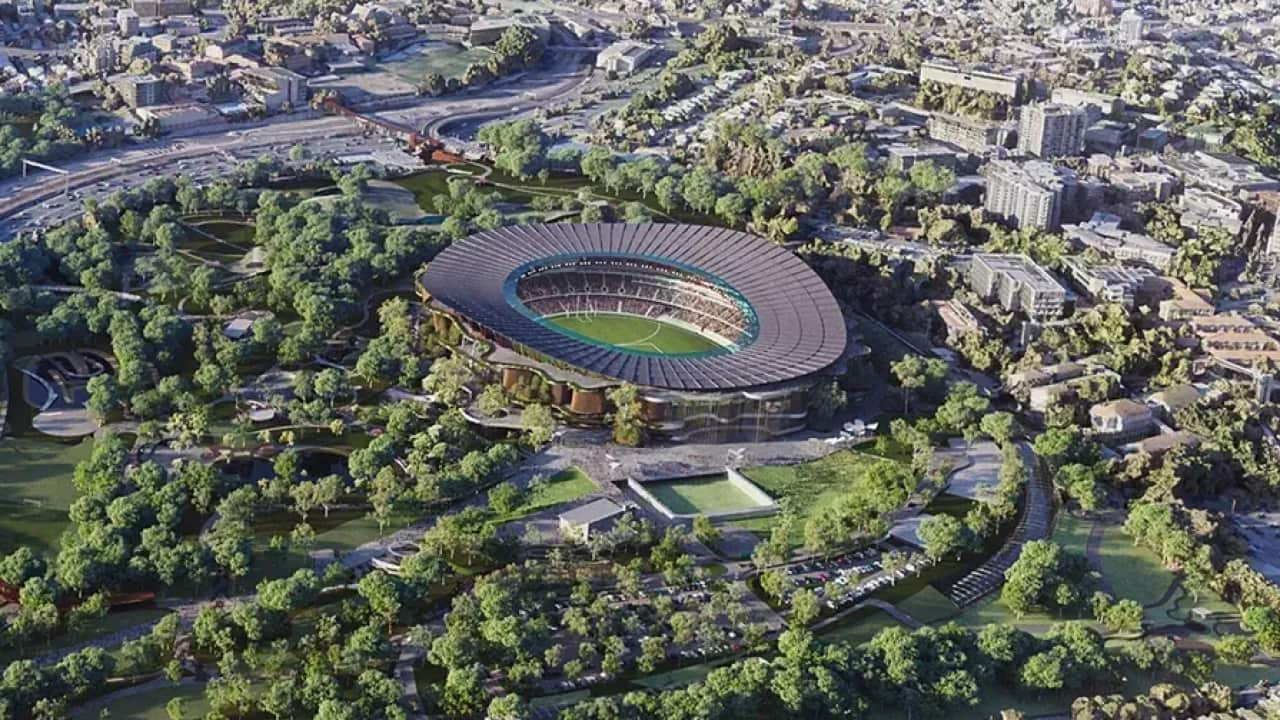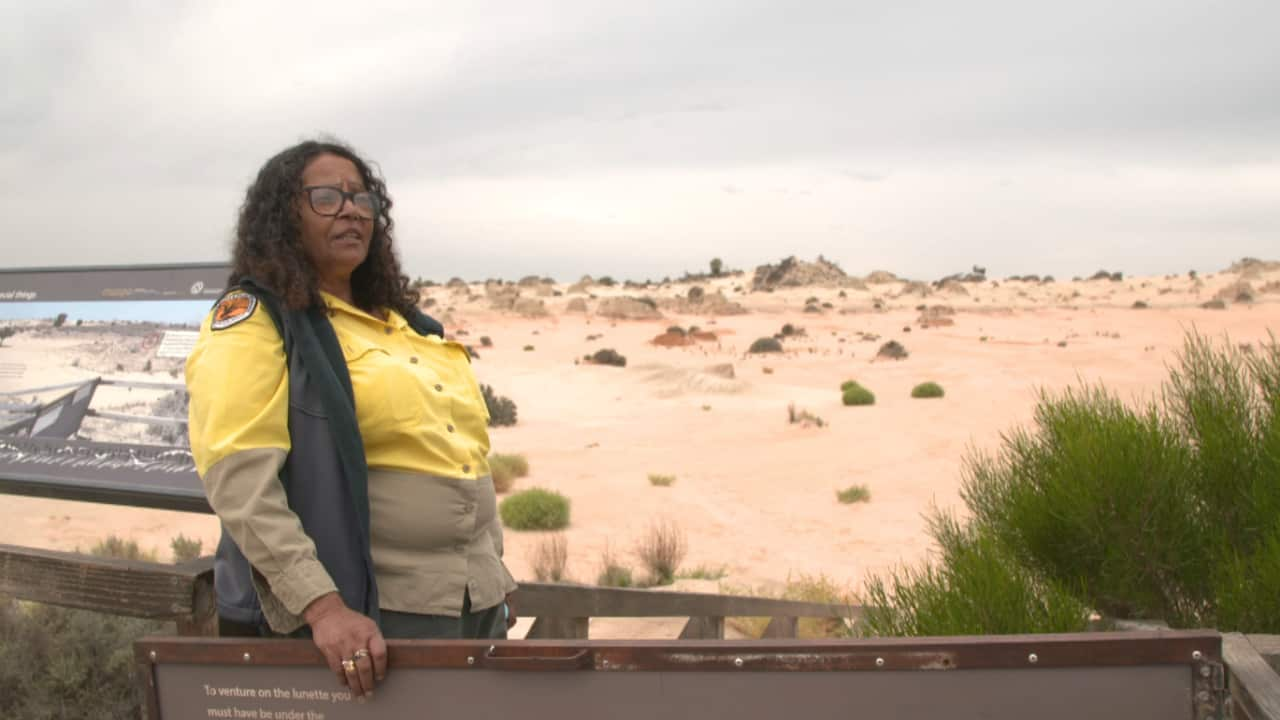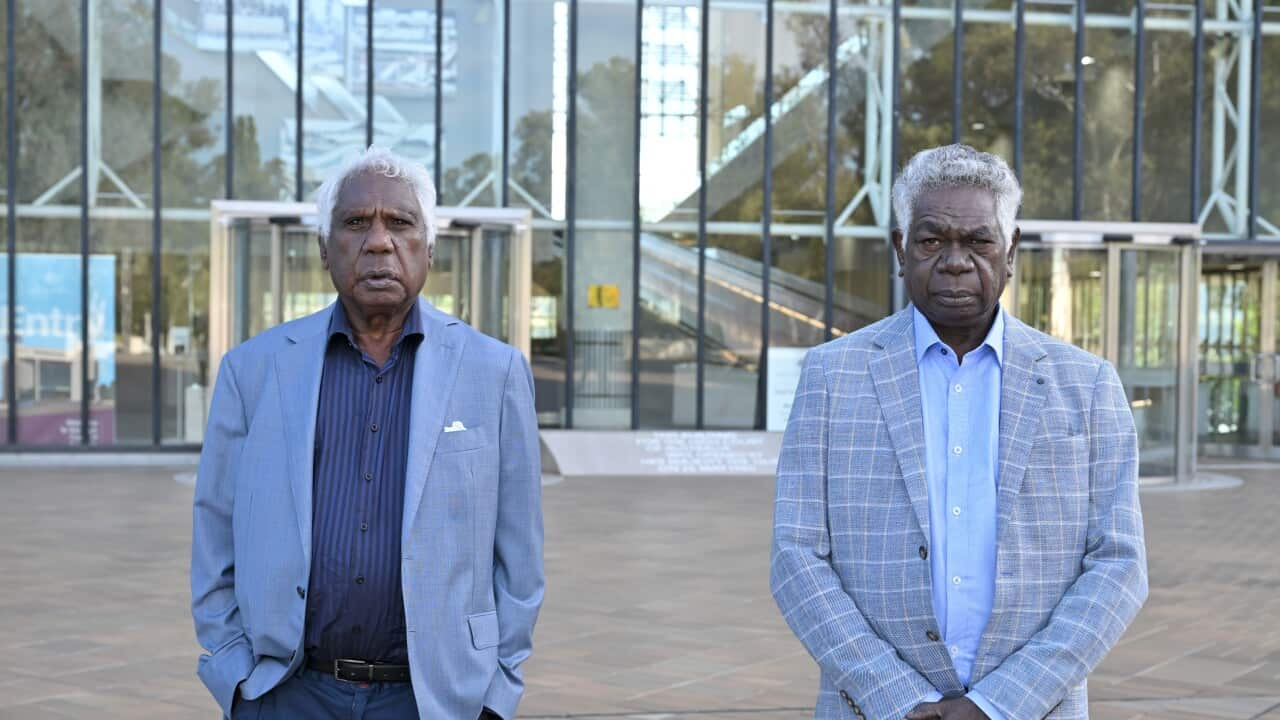A Federal Court judge has dismissed an application from an Aboriginal man to halt the reburial of Mungo Man and Mungo Lady, the oldest human remains found in Australia.
In 1968 geologist Jim Bowler uncovered the bones of a woman in Lake Mungo, southwest NSW, estimated to be 40,000 to 42,000 years old.
A few years later, in 1974, the remains of a man were found in the same area.
They became known as Mungo Lady and Mungo Man - and along with the ancient remains of 106 other people they were removed from the Willandra Lakes area during the 1960s and 70s and taken to the Australian National University, without permission from the three Traditional Owner groups of the region, the Mutthi Mutthi, Barkindji (Paakindji) and Nyiyampa peoples.
Mungo Lady was repatriated to Traditional Owners in 1992 and Mungo Man returned with a ceremony in 2017.
But there was disagreement within community about what should be done next.
Some Traditional Owners wanted a "keeping place" for the remains for scientific study and public access, while others believed they should be returned to where they'd come from and reburied.
In 2022 then federal Environment Minister Sussan Ley approved a burial process for the 108 remains.
But Wamba Wamba and Mutthi Mutthi man Jason Kelly,
a member of Victoria's First Peoples' Assembly, launched a legal challenge to compel federal Environment Minister Tanya Plibersek to exercise her heritage-protection powers and stop the reburials.
Mr Kelly and others argued that the remains should be kept in a "keeping place" accessible to both scientists and descendants, and that the reburial in unmarked locations is disrespectful and a loss of potential knowledge.
But today Judge Melissa Perry dismissed the application, ruling that there had been no error of law in the Minister's approval process.
In her summary Justice Perry said the great age of Mungo Lady was highlighted by the Australian Heritage Commission when it nominated the Willandra Lakes Region for inclusion on the World Heritage List in 1980.
"The return of the ancestral remains to the Willandra Lakes region is the culmination of cross generational efforts by Traditional Owners, at great personal cost, to repatriate the ancestral remains to country," she said.
"The ancestral remains demonstrate culturally significant burial rituals.
"Protecting burial sites and remains is important in accordance with Aboriginal tradition, particularly for the Mutthi Mutthi, Nyiyampa and Barkindji peoples, the three Traditional Owner groups for whom the ancestral remains are sacred."
The reburial of the remaining 106 ancestral remains is currently underway.
The judge ordered that Mr Kelly pay $10,000 costs of the Environment Minister.





